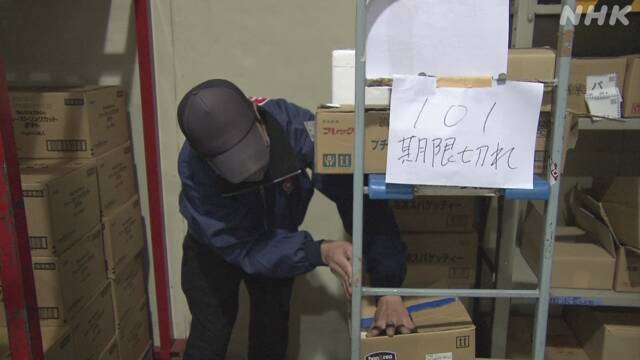The impact of the state of emergency has spread not only to restaurants that operate in a short time, but also to companies that sell foodstuffs, etc. doing.
Of these, wholesalers of food for eating out saw a significant decrease in orders from izakaya and employee cafeterias due to the shortened business hours of restaurants and the spread of telecommuting at companies.
At the distribution center of this company in Toda City, Saitama Prefecture, we changed the trucks that deliver food to smaller ones in response to the decrease in orders, but labor costs and fuel costs are burdensome because there are few products to deliver. I will.
On the other hand, the inventory of foods whose expiration date has expired has increased sharply in response to the state of emergency, and frozen crabs and cut vegetables that are scheduled to be discarded soon are piled up in one corner of the warehouse.
This company sometimes donates food to support groups before the expiration date, but the reality is that most of them have to be discarded, and the cost of disposal is high.
President Shinya Kuze said, "We have made room in inventory to prevent food shortages at our customers' stores, but the state of emergency changed the balance between supply and demand, and we now have a lot of inventory. We are making efforts such as proposing new menus to our business partners in order to reduce the number, but we cannot keep up with them. "

